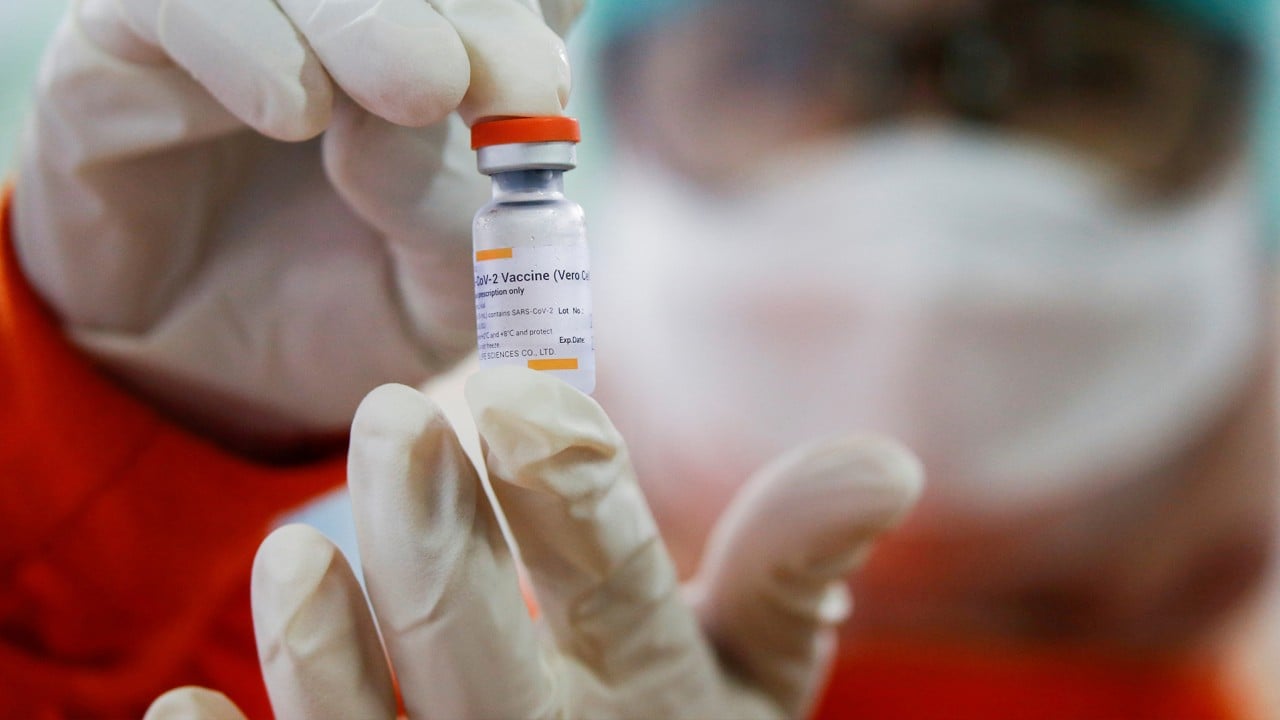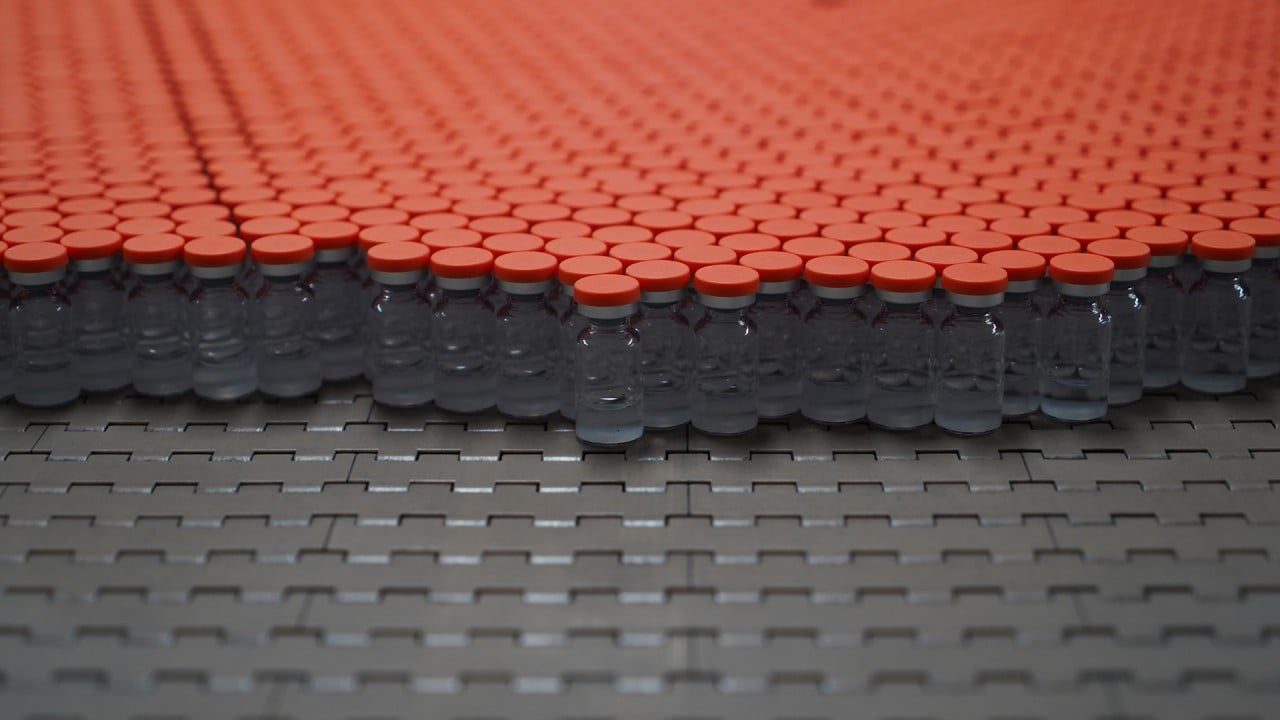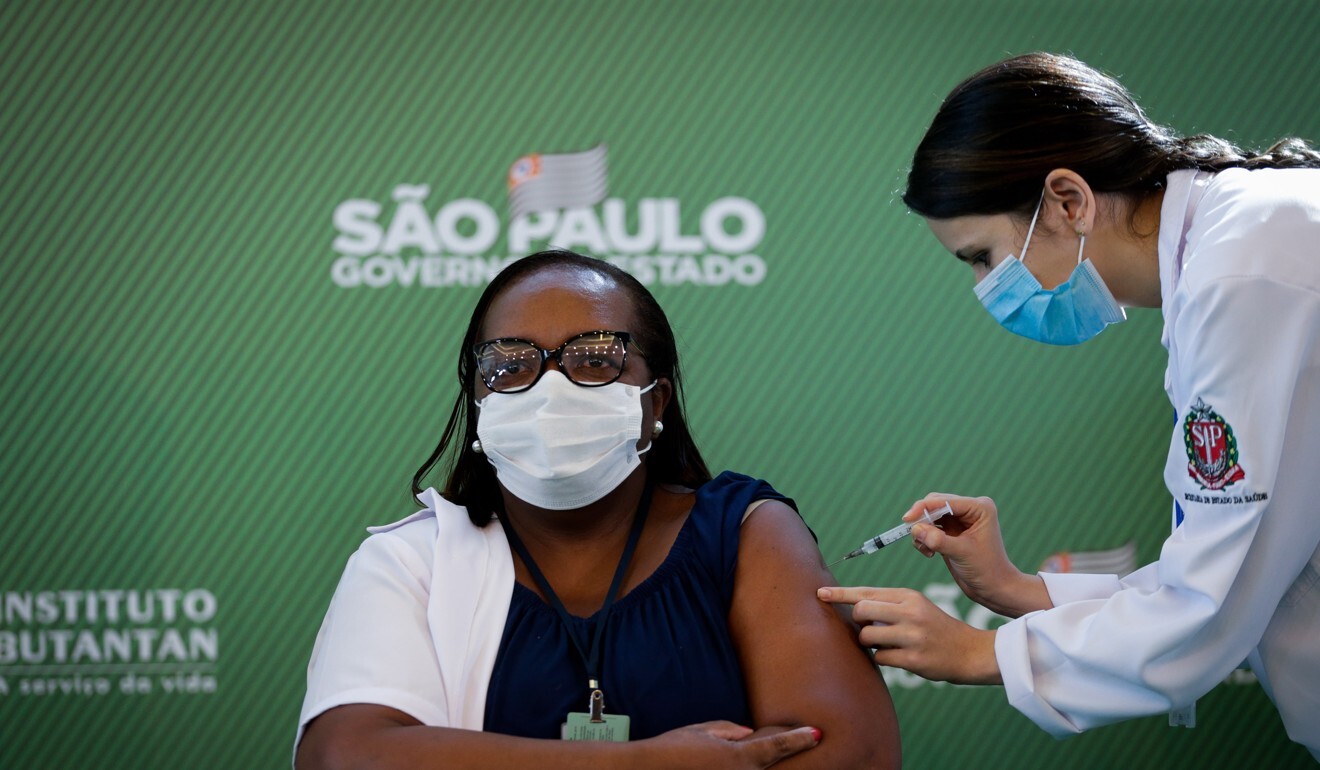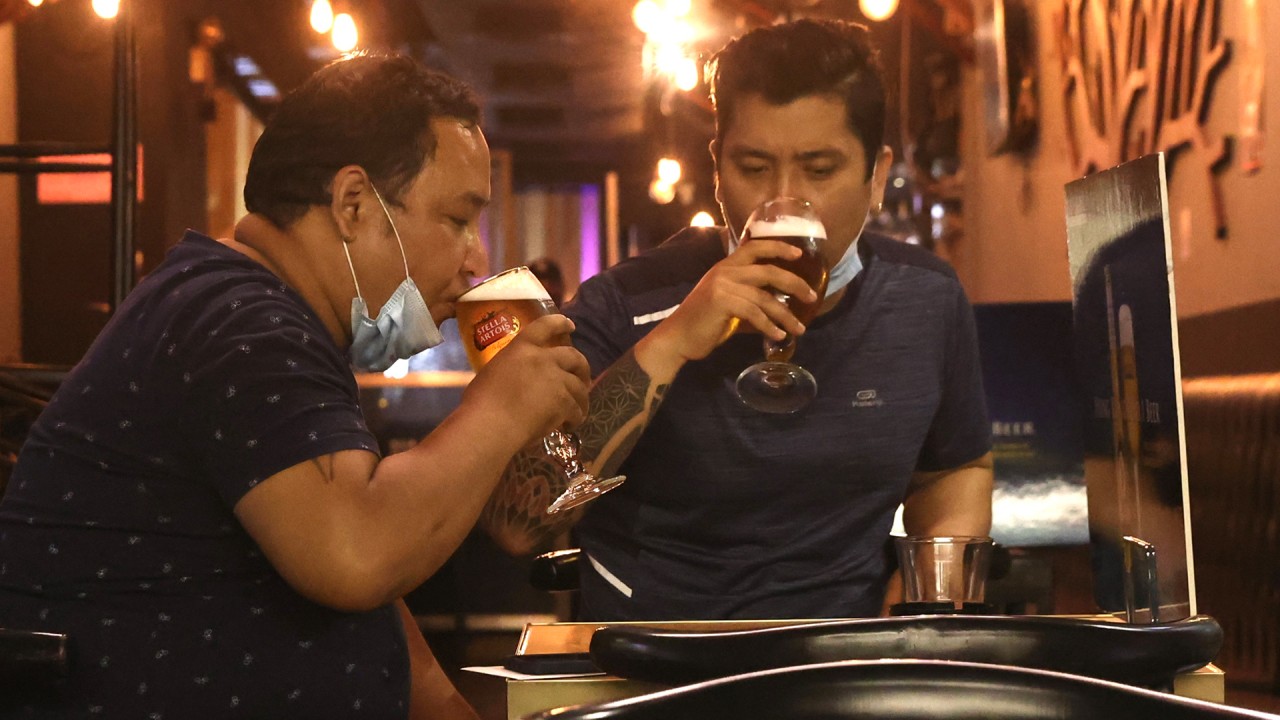
WHO approves Sinovac coronavirus vaccine for emergency use, second Chinese treatment to win designation
- The company joins Sinopharm as a Chinese supplier endorsed by the World Health Organization
- The move has the potential to help WHO’s dose-strapped Covax vaccine distribution programme
The WHO announced its decision to clear the CoronaVac vaccine for an emergency-use licence on Tuesday, making it the second vaccine from a Chinese drug maker to receive the listing in less than a month.
The move has the potential to help the dose-strapped Covax vaccine distribution programme, adding the Beijing-based vaccine maker – which claims an annual production capacity of 2 billion doses – to a shortlist of companies eligible to supply the programme, sponsored by the WHO and other global health organisations.

01:30
WHO approves Sinovac Biotech’s coronavirus vaccine for emergency use
“We urge manufacturers to participate in the Covax Facility, share their know-how and data and contribute to bringing the pandemic under control.”
Other vaccine manufacturers to earn the designation include Pfizer/BioNTech, Moderna, Johnson & Johnson, and AstraZeneca/University of Oxford, in partnership with vaccine-makers in India and South Korea.

02:35
Inside a plant in China producing the WHO-approved Sinovac Covid-19 vaccine
Questions about efficacy have dogged Sinovac throughout its global roll-out as data from its final phase clinical trials have yet to be published in a peer-reviewed journal, and different study locations reported efficacy results ranging from 50.7 per cent to 83.5 per cent effective.
Those differences may be attributed to various factors, including the severity of the epidemic or the circulation of variants of the virus at the time of the trials, Meng Weining, Sinovac’s vice-president of international affairs said in Beijing on Tuesday.
Sinovac chairman Yin Weidong said the studies provided the scientific foundation for CoronaVac in securing international approval.
“The phase 3 clinical research and follow-up real-world studies in Brazil, Turkey, Indonesia and Chile represent good examples of the collaborative, global action against the pandemic,” Yin said in a statement after the WHO authorisation.
“These studies have provided a solid scientific foundation for CoronaVac to be approved by more than 40 countries, as well as the WHO.”
A WHO strategic advisory group, which provides recommendations for vaccine use but not licensing, recommended the vaccine for adults 18 years and older.
Sinovac shot causes ‘drastic drop’ in deaths, infections among Indonesian health workers
While the group said there were not enough older adults included in Sinovac‘s clinical trials to gauge efficacy for this group, the WHO is not recommending an upper age limit for the vaccine based on additional data collected and said there was no reason to believe there would be a different safety profile in this group.
The agency recommended that countries using the vaccine in older age groups monitor for safety and effectiveness.
The two-dose vaccine, which was authorised for emergency use in China last July, has already played an outsize role in global vaccine supply, as low- and middle-income countries including Brazil, Indonesia and the Philippines scramble for access to doses and have increasingly turned to China.
Some 600 million CoronaVac doses had been supplied at home and overseas, with 430 million already administered, the company said on Tuesday.

06:18
SCMP Explains: What’s in a Covid-19 vaccine?
“We will strengthen our cooperation with global partners, the United Nations Children’s Emergency Fund (Unicef), Gavi, the Vaccine Alliance and Covax to ensure Sinovac vaccines can enter more countries and play a more important role in containing the Covid-19 pandemic,” he said.
“I have confidence that an EUL will accelerate an agreement with Covax,” Meng said, adding the company had been in talks to act as a supplier, but no deal could be reached without the listing.
The programme aims to close an access gap between rich and poor nations by supplying at least 2 billion doses this year. But it missed early delivery targets after export controls were placed on a key Indian manufacturer following a domestic surge of cases.
Sinovac vaccines create ‘immunity barrier’ in Brazilian town: study
Sinovac’s vaccine relies on a traditional technology with cheaper, less stringent storage requirements compared with some other doses to receive the WHO’s EUL, making it an easier option for developing countries.
The Sinovac approval also comes as more information about its real-world effectiveness emerges.
The institute, which partnered with Sinovac to run Brazil’s phase 3 clinical trials of CoronaVac, said some 27,000 adults, or 96 per cent of the adult population of Serrana outside Sao Paulo, were given two doses of the inactivated vaccines at a 28-day interval starting mid February.

Five weeks after full inoculation, the town of 45,000 saw an 80 per cent of drop in symptomatic cases and an 86 per cent decrease in hospitalisations, the institute said, adding that the vaccines created an immunity barrier even as children remained unvaccinated.
“The most important result was understanding that we can control the pandemics even without vaccinating all the population,” said study director Ricardo Palacios, the institute’s medical director of clinical research.
Jin Dong-yan, a professor with the University of Hong Kong’s medical school, said the Brazilian study could indicate the potential for Sinovac to make an impact on the disease at a community level, but that more information was needed.
“It’s a positive sign, but for this positive sign to have a bigger impact they should present the raw data so everybody can be convinced,” he said, referring to the underlying data used to calculate the statistics, as well as information about the number of adults and children who were infected but not showing symptoms.
Sinovac said the data was preliminary and a more detailed report was expected to be released later.
CoronaVac is also one of the two Covid-19 vaccines being administered in Hong Kong. So far, around 1.05 million doses of the Sinovac vaccines have been administered, including some 440,000 people who had received two shots.
Those receiving the Sinovac vaccines were fewer than those taking the Comirnaty shots made by BioNTech; more than 1.38 million Comirnaty doses have been administered in the city.

01:52
‘Vaccine bubble’ allowing Hong Kong bars and party rooms to reopen leaves many confused
The Hong Kong government welcomed the WHO’s decision.
A spokesman for the Food and Health Bureau said both vaccines used in Hong Kong fulfilled requirements of safety, efficacy and quality, and have been stringently assessed by experts.
Professor David Hui Shu-cheong, a pandemic adviser for the Hong Kong government, said the WHO approval could have a positive impact on the city’s vaccination scheme.
“At least it confirms that the vaccine we are using is internationally recognised. Its efficacy and safety has a certain level of guarantee,” Hui said. “Confirmation from the WHO could act like an accelerant” in increasing the vaccination rate.
Hui said that the hesitancy of some people to get the Sinovac vaccine initially could be due to insufficient published data.
The international authorisation of the vaccine could also mean any disputes on whether to recognise the jab for travelling could be avoided, Hui said, now that WHO had endorsed it.
Additional reporting by Elizabeth Cheung


